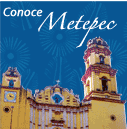The Washington Times (Estados Unidos)
Editorials/Op-Ed
August 23, 2006
In the more than three weeks since the firebrand populist Andres Manuel Lopez Obrador began his protests in Mexico City to dispute the slim victory of his conservative rival Felipe Calderon in the July 2 presidential election, the Federal Electoral Tribunal has rejected a full recount and, after conducting a limited recount, found no evidence of fraud or serious irregularity. Mr. Lopez Obrador's opposition has become more vehement, however, most likely in anticipation of a final decision due from the Federal Electoral Institute on Sept. 6. The protests have caused problems for commuters and turned away tourists and visitors, costing local business an estimated $23 million per day.
In an interview with the Financial Times, the leftist asserted that "the most important changes in Mexico have never come about through conventional politics but rather from the streets." In a country with Mexico's sordid political past, such a dismissive attitude toward official democratic institutions may play well with the more cynical and suspicious element of the Mexican electorate. But it comes at the expense of sound democratic institutions, and for Mr. Lopez Obrador to then justify his actions as an effort to save Mexican democracy is thoroughly hypocritical.
Despite his insistence that the protests are peaceful, Mr. Lopez Obrador claimed during the interview that he is willing to bring his "civil resistance" to its "ultimate consequences," which sounds far too much like a call to violence. Taken in conjunction with his combative response to charges of being a revolutionary ("Mexico needs a revolution"), his pledges to keep the protests going "as long as it takes" and his explicit comparison to the revolution of 1910, Mr. Lopez Obrador's tone has become more ominous and his actions deeply concerning. Mr. Lopez Obrador's radical method and disregard for the electoral process has cost his Revolutionary Democratic Party (PRD) some of its support. The close race for the governorship of Chiapas, a poor southern state that should be a PRD stronghold, is tangible evidence of the leftists' decreasing support.
Mr. Lopez Obrador's abuses will, at best, undercut the political capital of the incoming president, who takes office Dec. 1. At worst, his refusal to accept the results of a free election could result in a severely fractured Mexico, which, along with the unrest that would ensue, is in nobody's interest. The more moderate leaders of Central and South America who came to power democratically and value that system of government should firmly rebuke Mr. Lopez Obrador's course of action. The same conditions that created support for the leftist in Mexico -- widespread poverty and the expectation that the state will function as a provider -- are prevalent elsewhere, and appearing to tolerate the destructive practice of circumventing democracy on the street sends an unacceptable message. For the United States, this is yet one more reason to quickly secure the southern border.
www.washingtontimes.com
23 de agosto de 2006
Suscribirse a:
Comentarios de la entrada (Atom)

No hay comentarios.:
Publicar un comentario